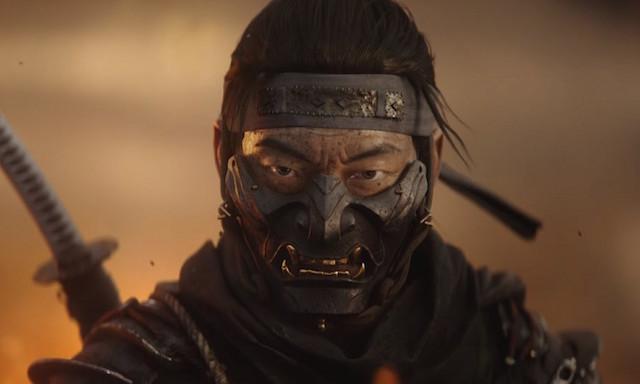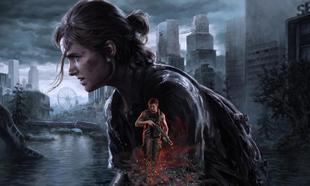Gaming and movies have always moved in tandem with one another, but there are only a handful of efforts that have so clearly tried to draw the line between the two.
Efforts from Rockstar Games, such as 'Grand Theft Auto: Vice City' or more recently, 'Red Dead Redemption 2', borrow heavily from movies like Brian DePalma's 'Scarface' and Clint Eastwood's 'Unforgiven'. While in those cases, there's a hint of satire in the mixture, 'Ghost of Tsushima' is trying to draw from chambara cinema, Japan's equivalent of westerns, with real sincerity.
There's even a cinematic mode game called 'Kurosawa Mode', which had the full blessing and support of the Akira Kurosawa estate, that renders the game in grainy black-and-white. You can switch between Japanese and English voice and subtitles, and the game can be even played with no HUD to allow for a more immersive experience.
As games of this generation go, 'Ghost of Tsushima' will rank among the most beautiful and gorgeously realised, with sunsets and moonlight rides through pampas grass made all the more stirring by the score from movie composers Ilan Eshkeri and Shigeru Umebayashi, the latter of which scored Zhang Yimou's 'House of Flying Daggers', while the former worked on Ralph Fiennes' adaptation of 'Coriolanus' and, uh, 'Shaun The Sheep: The Movie'.
With all this emphasis on style, music, incredible graphics, the question then leads to whether or not the gameplay is up to the same standard. This is where it gets a little difficult. It's a frustrating game to play and review because, for every time you think it's really involved and thought-out, you realise that it's actually quite simple and not that complex.
There are a handful of enemy types that you'll encounter, and you can quite easily shift through different stances to counter them. You can draw out the fights, make them more about technique and skill, or you can hack and slash your way through them in a matter of minutes, rolling and evading through fights as you desire. You can, of course, sneak your way into the camp and try and puzzle your way around killing everyone - but very often, the game will insist that you face them head-on.
Likewise, the honourable / dishonourable methods you employ doesn't really have much impact beyond a few cutscenes. You can easily shift between sneaking in, and if you're detected, well, you can slice and dice your way out of it in short order. Compared to something like 'Metal Gear Solid 3', 'Dishonored', 'Batman: Arkham Knight', or even 'Skyrim', the sneaking system doesn't feel quite as in-depth. You use a hearing system to detect where enemies are, and with enough upgrades, you can even tell if someone you kill will alert anyone else. You can also chain together assassinations as you spring from rooftops or rope-lines.
You can climb under tents, jump from pampas grass to knife someone, you can use blow-darts and or arrows to take out enemies from afar. Yet, it doesn't have the same tension or atmosphere of these. You're simply waiting for them to move into position, and then you're waiting to strike. The enemy AI isn't particularly smart, often returning to their patrols in a heartbeat, and the detection meters are easy to follow.
As for side-quests, there are plenty to choose from and the variety is better than some of the veteran role-playing franchises. There are 'Mythic Quests', where you'll end up with special armour or weaponry, there are 'Tales of Tsushima', which involve the various supporting characters along the way, and then there are countless shrines to find, banners to collect, flowers to harvest for new dyes for your armour, and on top of that, you'll often find yourself encountering a wandering patrol of enemies that you'll need to cut your way through.
For all these features, all this content stuffed into 'Ghost of Tsushima', it's hard then to describe the game as lacking depth - but it does, to a certain degree. The side-quests do become a little samey, the combat becomes kind of repetitive, the armour and weaponry system isn't all that it's cracked up to be. So then you have to question whether it's an RPG or an action-adventure game? If you view it as an RPG, there's not enough in it, yet if it's an action-adventure game, there's too much of it. Essentially, it feels like it's caught between the two genres - neither totally satisfying one nor neglecting the other.
This might be difficult to tease out properly in a review, but you start to feel it when you're ten to fifteen hours into the game. It may be for you that the balance between the two genres is just right, as some RPGs can require far too much of an investment and often action-adventure games have a level of repetitiveness that makes them stale very quickly.
'Ghost of Tsushima' is a noble effort, and the impressiveness of the graphics really can't be overstated. There are some beautiful touches to the game that speaks to thoughtfulness in design. You can find your way to an objective by following the gusts of wind. Foxes and birds will guide you to side-quests and treasure. You can skill up your combat stats with a bamboo strike minigame. You can change the weather by playing the shakuhachi. You can compose a haiku to gain new cosmetic items.
It's a well-crafted, beautifully designed game. It's just not sure if it's an RPG, an action-adventure game, a hack-and-slash button smasher, or something else altogether.
'Ghost of Tsuhima' is available from July 17th, only on PlayStation 4.










































































